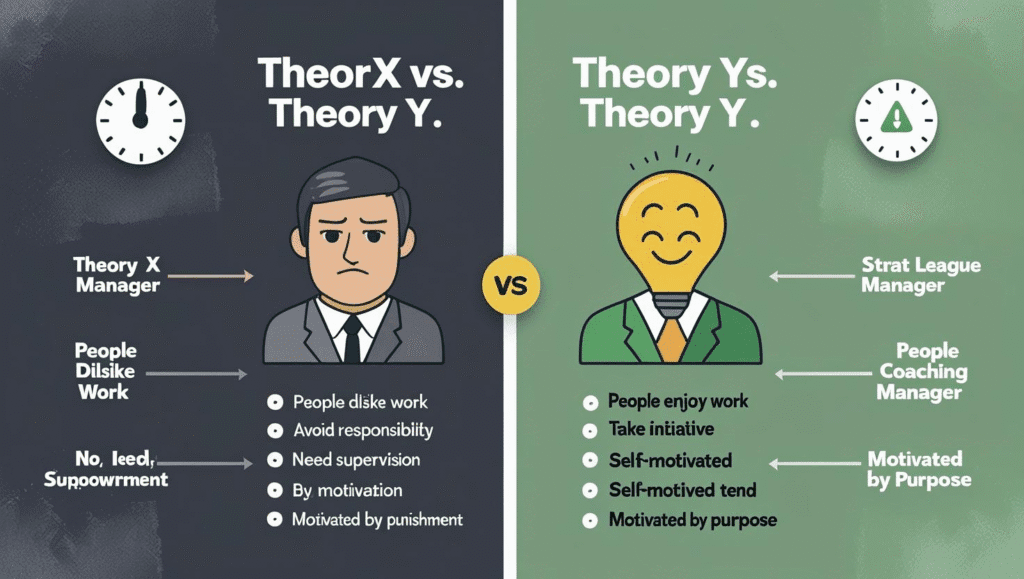The Synergy of Governance and Social Good: Unpacking Corporate Governance and its Impact on Global CSR
In today’s hyper-connected and socially conscious world, corporations are no longer judged solely on their financial performance. Stakeholders—from investors and employees to customers and communities—demand greater accountability and a commitment to ethical conduct. This shift has placed two critical concepts at the forefront of business strategy: Corporate Governance and Corporate Social Responsibility (CSR). While often discussed separately, they are deeply intertwined. Good corporate governance is not merely a prerequisite for CSR; it is the foundational framework that gives CSR initiatives authenticity, strategic direction, and sustainable impact, especially within a complex international context.
Table of Contents
- 1. Defining Corporate Governance: The Company’s Constitution
- 2. The Key Principles of Good Corporate Governance
- 3. Understanding Corporate Social Responsibility (CSR)
- 4. The Crucial Link: How Governance Powers CSR in an International Context
- 5. Governance in Action: Real-World Case Studies
- 6. The Future: ESG, Stakeholder Capitalism, and Technology
- 7. Frequently Asked Questions (FAQ)
1. Defining Corporate Governance: The Company’s Constitution
At its core, corporate governance is the system of rules, practices, and processes by which a company is directed and controlled. Think of it as a corporation’s constitution. It defines the distribution of rights and responsibilities among different participants in the corporation, such as the board of directors, managers, shareholders, and other stakeholders. It spells out the rules and procedures for making decisions on corporate affairs.
Effective governance provides a structure to achieve a company’s objectives while ensuring accountability and managing risk. It is fundamentally concerned with balancing the interests of its many stakeholders. In the absence of strong governance, a company can become susceptible to mismanagement, corruption, and short-term thinking that ultimately harms its long-term viability and public trust.
Corporate governance is about more than just compliance and rule-following. It’s about building a culture of integrity and accountability that permeates every level of the organization, guiding it towards sustainable value creation for all stakeholders.
2. The Key Principles of Good Corporate Governance
While frameworks may vary slightly, the core principles of good corporate governance are universally recognized. They provide a blueprint for building resilient, ethical, and successful organizations. The most prominent principles include:
-
Accountability
This principle ensures that there is a clear line of responsibility throughout the organization. The Board of Directors is accountable to the shareholders, and executive management is accountable to the board. Accountability means being answerable for actions and decisions. In practice, this involves robust internal controls, performance measurement systems, and clear roles for committees like the audit committee. It ensures that when something goes wrong, the responsibility can be traced, and corrective action can be taken.
-
Transparency
Transparency refers to the timely and accurate disclosure of all material matters regarding the corporation, including its financial situation, performance, ownership, and governance structure. It means being open and clear with stakeholders. This is not just about producing an annual report; it’s about fostering a culture of openness. Transparent companies provide information that is accessible, easy to understand, and relevant to stakeholder needs, which is the cornerstone of building trust.
-
Fairness
Good governance requires that all stakeholders, particularly shareholders, are treated equitably. This includes protecting minority and foreign shareholders’ rights and providing them with effective redress for any violations. Fairness extends beyond shareholders to employees, customers, and suppliers. It means policies are applied consistently and justly, preventing insider trading, abusive self-dealing, and conflicts of interest.
-
Responsibility
Corporate responsibility refers to the board’s moral and legal obligation to oversee the company’s activities with due care and diligence. Directors must act in the best interests of the company and its shareholders. This also encompasses a broader responsibility to adhere to the laws and ethical standards of the societies in which the company operates. It is the board’s duty to ensure the company is a good corporate citizen.
-
Independence
To reduce potential conflicts of interest and ensure objective decision-making, a board should have a sufficient number of independent, non-executive directors. These individuals can bring a fresh perspective, challenge management’s assumptions, and provide unbiased oversight on critical issues like executive compensation, audit functions, and strategic planning. Their independence is a crucial check and balance against the concentration of power.
Key Takeaway
Good governance is the internal compass that guides a company. The principles of Accountability, Transparency, Fairness, and Responsibility are not just theoretical ideals; they are practical pillars that support long-term stability, investor confidence, and ethical operations.
3. Understanding Corporate Social Responsibility (CSR)
Corporate Social Responsibility (CSR) is a business model where companies make a concerted effort to operate in ways that enhance—rather than degrade—society and the environment. It’s a form of self-regulation integrated into a company’s strategy, where it monitors and ensures its active compliance with the spirit of the law, ethical standards, and international norms.
CSR initiatives can be broadly categorized:
- Environmental Responsibility: Reducing carbon footprint, managing waste, conserving water, and using sustainable resources.
- Ethical/Labor Responsibility: Ensuring fair labor practices, safe working conditions, and diversity and inclusion, both internally and throughout the supply chain.
- Philanthropic Responsibility: Donating funds, time, or resources to charitable causes and community development projects.
- Economic Responsibility: Making financial decisions that prioritize the “triple bottom line”—People, Planet, and Profit—ensuring long-term sustainability over short-term gains.
CSR is the external expression of a company’s values, demonstrating its commitment to operating as a positive force in the world.
4. The Crucial Link: How Governance Powers CSR in an International Context
The connection between governance and CSR is profound. Without the internal structures of good governance, CSR efforts risk becoming superficial, inconsistent, or, worse, a mere marketing ploy known as “greenwashing.” Good governance provides the engine and the steering for meaningful CSR.
Transparency and Accountability Foster Credible CSR
In an international context, a company might claim its products are made ethically. But how can stakeholders verify this? A transparent governance structure mandates clear reporting on supply chain audits, labor conditions in overseas factories, and environmental impact assessments. Accountability ensures that a specific board committee is responsible for verifying these claims. Without this, CSR pledges are empty promises. Trust is built when a company openly reports both its CSR successes and its failures, and outlines its plan for improvement—a direct outcome of transparent governance.
Fairness Translates to Ethical Global Supply Chains
The principle of fairness, when properly applied, extends beyond shareholders. A board committed to fairness will question whether its pursuit of low-cost manufacturing comes at the expense of exploiting labor in developing nations. Good governance systems will implement and enforce a global code of conduct for suppliers, demanding fair wages, safe working conditions, and a ban on child labor. This transforms CSR from a local charity initiative into a core component of global operations.
Responsibility and Independence Drive Strategic CSR
A responsible board, particularly one with independent directors, is more likely to view CSR as a strategic imperative rather than a cost center. Independent directors can challenge a purely profit-driven mindset and advocate for long-term value creation that includes social and environmental factors. This leads to the integration of CSR into the core business strategy. For example, an energy company’s board might strategically pivot towards renewable energy not just for PR, but because their governance framework recognizes the long-term risks of climate change and the opportunities in sustainable technology.
Navigating International Complexity
Operating globally means navigating a maze of different laws, cultures, and ethical expectations. A strong corporate governance framework acts as a universal operating system. It provides a consistent set of principles that guide decision-making, whether the company is in Germany, Vietnam, or Brazil. This prevents ethical relativism and ensures the company upholds its core values everywhere, building a consistent and trustworthy global brand identity.
5. Governance in Action: Real-World Case Studies
Case Study: The Virtuous Cycle (e.g., Patagonia)
Companies like Patagonia exemplify the synergy. Their governance structure (as a B Corp) legally requires them to consider the impact of their decisions on workers, customers, suppliers, the community, and the environment. This isn’t just a marketing slogan; it’s embedded in their corporate charter. This governance commitment directly drives their renowned CSR: donating 1% of sales to environmental causes, advocating for public lands, and pioneering sustainable materials. Their transparency in supply chains and accountability for their environmental footprint build immense customer loyalty and brand value.
Case Study: The Governance Failure (e.g., Volkswagen “Dieselgate”)
The Volkswagen emissions scandal is a classic example of governance failure leading to a CSR catastrophe. A culture lacking transparency and accountability allowed engineers to install “defeat devices” to cheat on emissions tests. The board failed in its oversight responsibility. The result was not only a massive environmental and health scandal but also a catastrophic loss of trust, billions in fines, and a plummeting stock price. It demonstrated that without an ethical governance core, any stated commitment to environmental responsibility is meaningless.
6. The Future: ESG, Stakeholder Capitalism, and Technology
The conversation is evolving. The synergy of governance and CSR is now most prominently captured in the concept of ESG (Environmental, Social, and Governance). Investors increasingly use ESG criteria to screen potential investments, recognizing that strong performance in these areas correlates with long-term financial health and reduced risk. This trend is pushing companies away from pure “shareholder primacy” towards “stakeholder capitalism,” an approach where corporate purpose is to create long-term value for all stakeholders.
Technology like blockchain offers the potential for unprecedented supply chain transparency, while AI can analyze vast datasets to identify governance risks and ethical lapses. The future belongs to corporations that embed this holistic view into their DNA, using strong governance as the platform to drive positive environmental and social outcomes.
7. Frequently Asked Questions (FAQ)
What is the main difference between CSR and ESG?
CSR is often seen as the self-regulated framework and initiatives a company undertakes to be socially accountable. ESG (Environmental, Social, Governance) is the criteria that investors and rating agencies use to measure the sustainability and ethical impact of a company. Think of CSR as the “actions” the company takes, and ESG as the “scorecard” used to evaluate those actions and the governance behind them.
How can a small business implement good corporate governance?
Good governance isn’t just for large corporations. Small businesses can start by creating a clear code of conduct, ensuring transparent financial records, establishing a board of advisors (even if informal) for independent perspective, treating all employees fairly, and clearly defining roles and responsibilities to foster accountability.
What are the tangible consequences of poor corporate governance?
Poor governance can lead to financial scandals, loss of investor confidence, higher cost of capital, regulatory fines, reputational damage, decreased employee morale and productivity, and ultimately, business failure. It creates an environment of risk and instability.
Who is ultimately responsible for overseeing corporate governance?
The Board of Directors holds the ultimate responsibility for overseeing and implementing the corporate governance framework. They are elected by and accountable to the shareholders to ensure the company is managed ethically and effectively in the long-term interest of all stakeholders.


